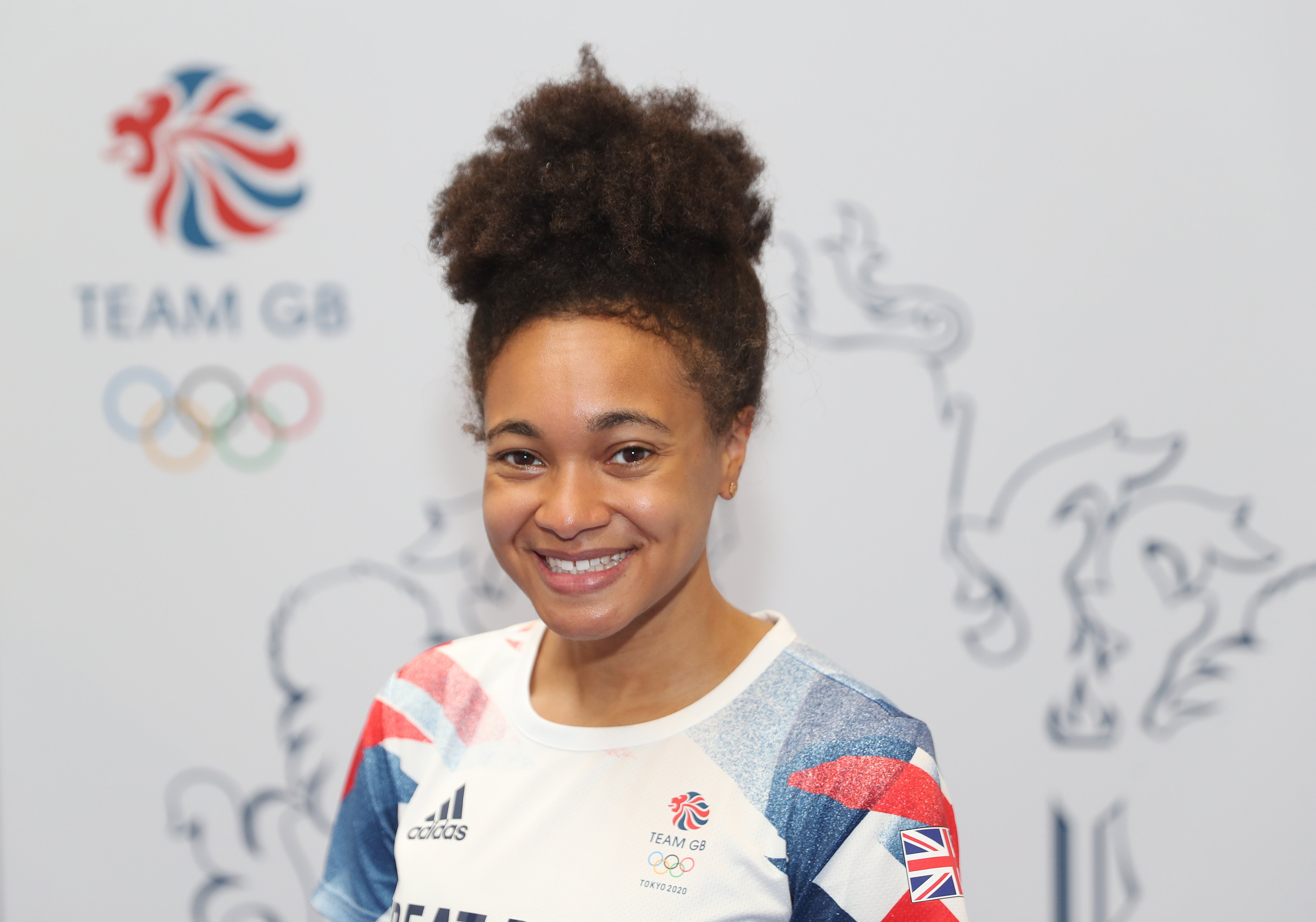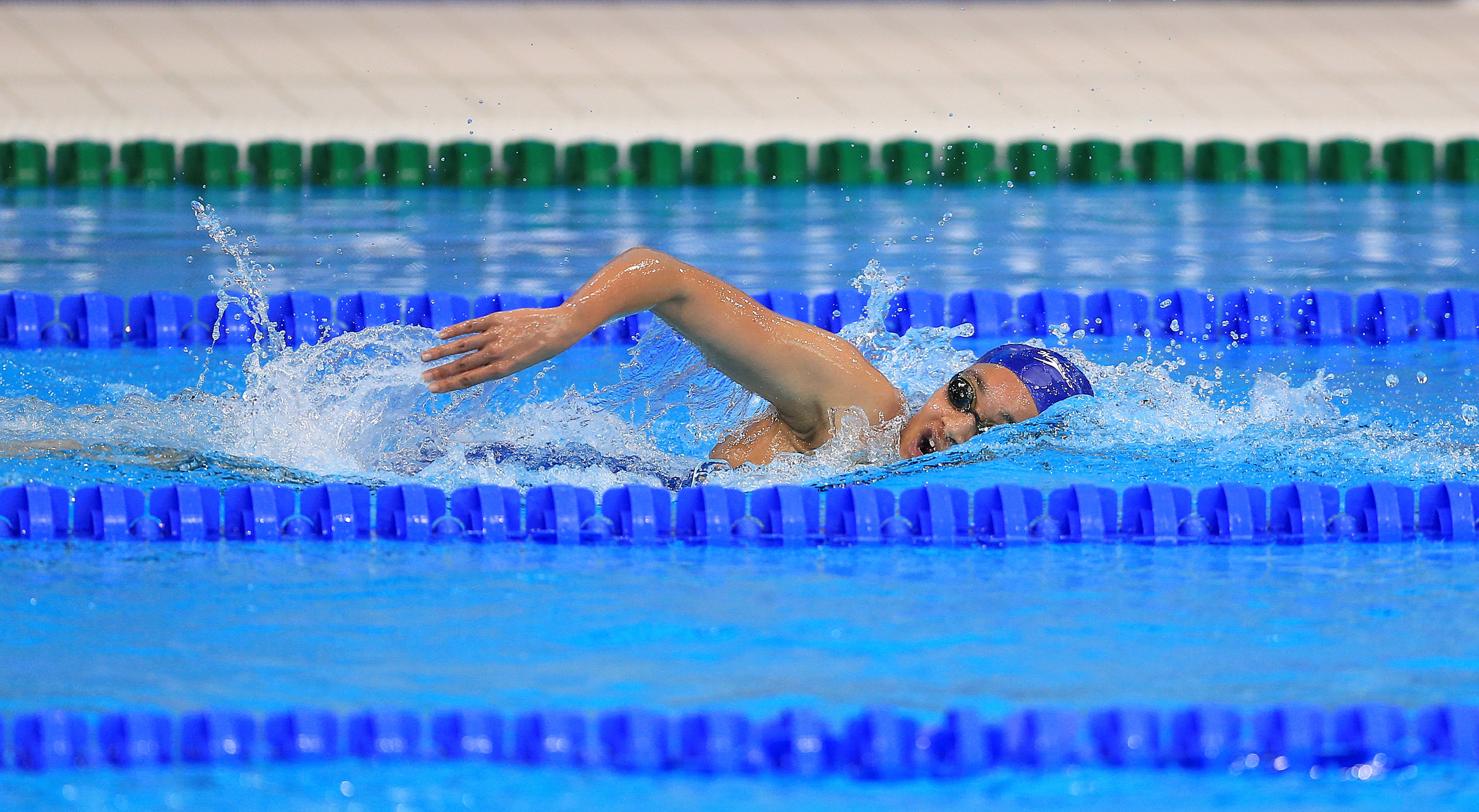Alice Dearing: Team GB’s first black female swimmer condemns ‘horrible stereotypes’ around the sport
‘Let everybody... decide for themselves what’s right for them, not what’s ‘right’ because [of] their skin colour or genetics’

Your support helps us to tell the story
From reproductive rights to climate change to Big Tech, The Independent is on the ground when the story is developing. Whether it's investigating the financials of Elon Musk's pro-Trump PAC or producing our latest documentary, 'The A Word', which shines a light on the American women fighting for reproductive rights, we know how important it is to parse out the facts from the messaging.
At such a critical moment in US history, we need reporters on the ground. Your donation allows us to keep sending journalists to speak to both sides of the story.
The Independent is trusted by Americans across the entire political spectrum. And unlike many other quality news outlets, we choose not to lock Americans out of our reporting and analysis with paywalls. We believe quality journalism should be available to everyone, paid for by those who can afford it.
Your support makes all the difference.As the first black female swimmer to represent Great Britain at the Olympics, Alice Dearing will make history when she competes in the 10km open water marathon in Tokyo on August 4.
The 24-year-says the “cultural and historical weight” of qualification wasn’t lost on her, and now it’s “all guns blazing” in the run up to race day: “I just want to make sure I’ve done everything I can in training to not have any regrets come the end of the race.”
We caught up with the Birmingham-born swimmer in Tokyo to talk training, nerves, and how she’s working to make the sport more diverse.

Do you get nervous before competing?
“Before a race I get both excited and nervous. I always think nerves are a good thing. They show you care, they show that you have a lot invested into what’s going on. At the same time, it’s a huge thrill of excitement.
“When you finally get to stand on the race line, finally get ready to dive in then that’s when everything’s like, ‘Finally, I’m here, I can do this, it’s go time’. Right now I’m really looking forward to that moment where it’s all in my hands and I can just go and do it.”
What was it like training during the coronavirus pandemic?
“Training during a pandemic obviously wasn’t easy. First lockdown, I didn’t even have a pool to swim in – I ended up having three months out of the water. I’m really fortunate that since May 2020, because of the elite athlete exemption, we weren’t stopped from swimming for lockdowns. It was really fortunate that that came into place and didn’t disrupt my swimming.”
How did you feel when the Olympics were postponed last year?
“The first feeling I felt when I heard the Olympics were postponed was a wave of relief. I was like, ‘OK, I can just chill, it’s not on me to have to find ways to train without having access to water [during lockdown]’. And then about 10 minutes later, I felt sad, and started crying because I felt I’d been really on track to qualify and I felt like I was in such a great pace.
“And then a couple of days later, I just had to accept it. You’re powerless to something like that. So I just said, ‘OK, I’ll chill now and then I’ve got another chance next year, and I’m just going to hit it harder’. I knew exactly what I wanted to do and where I wanted to be and I ended up there. It worked out well for me, thankfully.”
Why did you decide to co-found the Black Swimming Association in 2020?
“I co-founded the BSA to help break down the barriers which have prevented people from taking part in swimming for so long. These are the stereotypes which stop people from wanting to get in the water, such as black people’s brains are too dense, that we don’t float in the water, all these horrible, messy stereotypes which prevent people from wanting to venture into swimming or even learning to swim.
“If someone wants to swim, let them swim, or if someone wants to run, let them run. Let everybody try everything they want to do and decide for themselves what’s right for them, not what’s ‘right’ because [of] their skin colour or genetics.”
What do you think needs to change to break down those barriers?
“There’s loads of ways that we can hopefully break down these barriers. One of these ways is myself working with Procter & Gamble on their Breaking Down Barriers campaign. It’s making people aware of these issues, but then also showing and highlighting the exciting work that people are doing.
“Myself, for example, in the BSA, we’re making sure we’re connecting black communities and aquatic governing bodies, bringing the two together to make sure that everybody’s represented, everybody has a seat at the table, and making [the sport] as open and diverse as possible.”
Where do you go for support if you suffer difficulties or setbacks in your career?
“I go to my mum for support. She’s always been my rock, always has been, always will be. The success that we share is something that makes me so proud and makes all of the early mornings, late nights, difficult swims, all of the highs and lows worth it.”
Alice Dearing has partnered with Procter & Gamble in a bid to break down barriers to entry in sport. Find out more about the Breaking Down Barriers campaign.